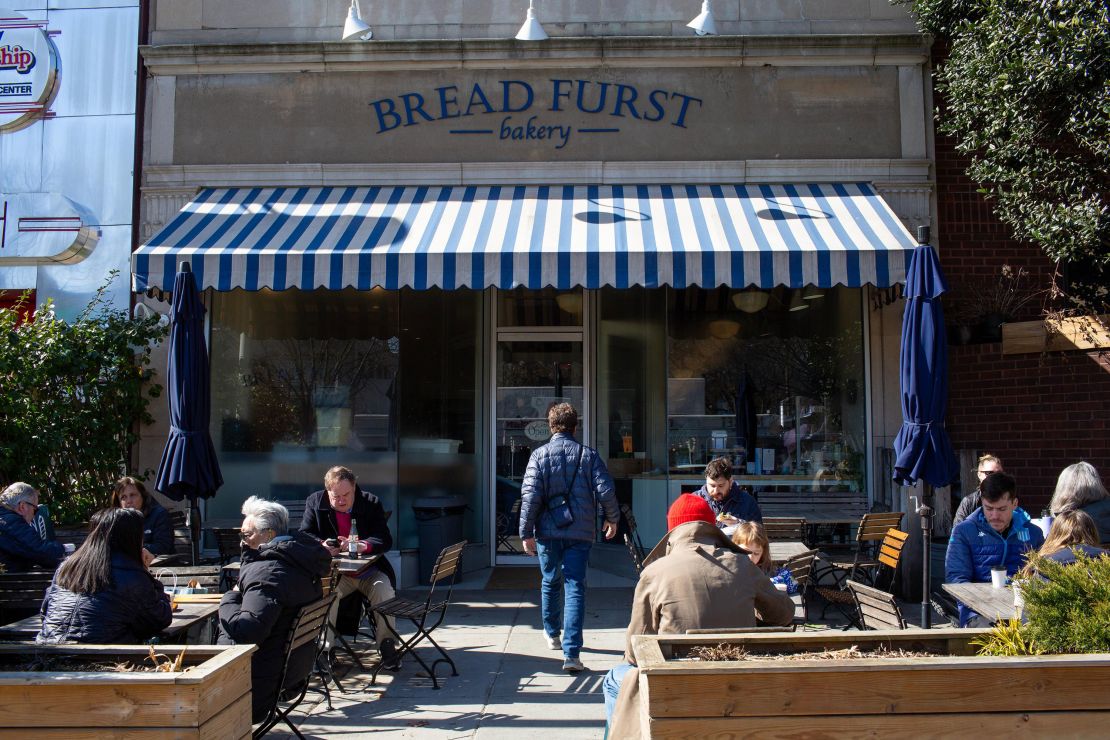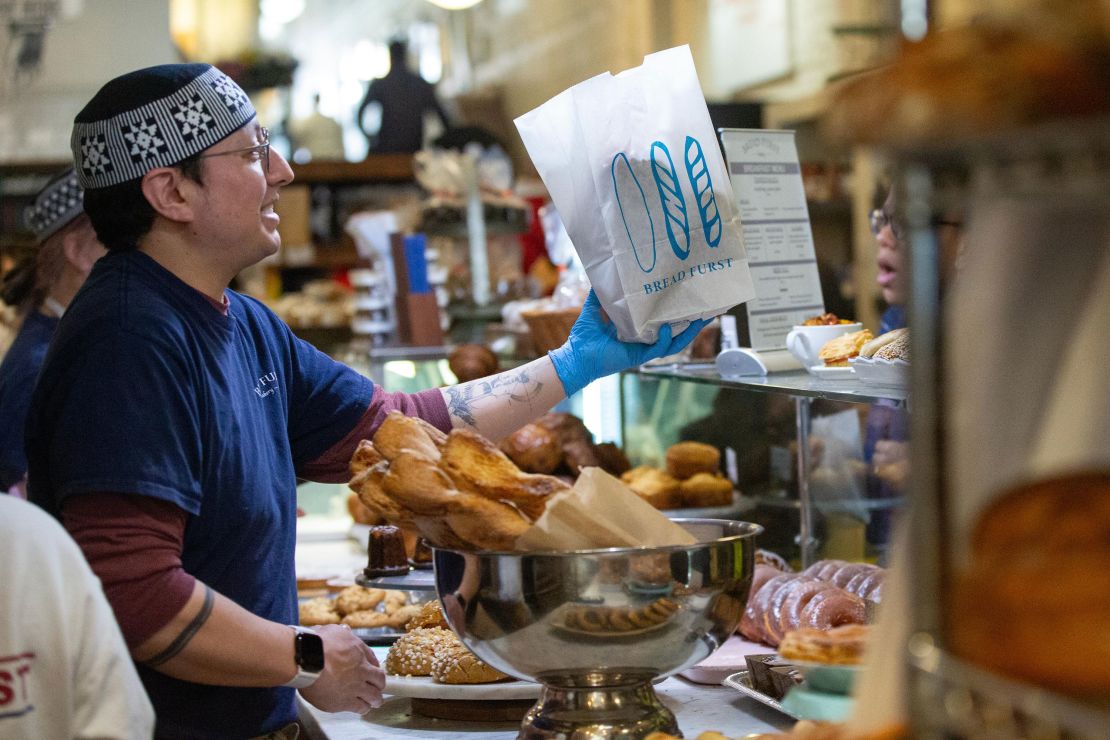Fluctuating egg prices aren’t anything new for Scott Auslander, general manager of Bread Furst, a bakery in Washington, DC. But this time is different, he told CNN.
“Our suppliers are telling us that they don’t know when egg prices are going to come down — or if they’re going to come down,” Auslander said. “Eggs are outrageous.”
Bread Furst uses about 150 eggs a day and is now paying more than double what the bakery used to pay a year ago, Auslander said. Last week, the bakery raised prices for all of its egg-heavy pastries and dishes, which is about a third of the menu. That includes its signature “messy egg sandwich,” which now costs a dollar more.

Egg prices are surging nationwide after the ongoing bird flu outbreak led to the culling of tens of millions of chickens last year. That’s forcing many of America’s bakeries to consider raising prices, if they haven’t already done so, while they attempt to figure out how to manage the country’s egg crisis.
“We’ve really never had to think about the cost of eggs until now,” Auslander said.
Scrambling for solutions
The highly pathogenic H5N1 virus, or bird flu, infected flocks across the country last year, resulting in the deaths of more than 40 million egg-laying birds, according to the US Department of Agriculture. That’s driving today’s egg shortage, which has caused prices to soar.
Wholesale fresh egg prices were 186% higher in January compared to the same month a year earlier, according to government data. That was the fourth-biggest annual increase on records going back to 1992.
Prices for bakery products haven’t risen meaningfully yet, according to the Consumer Price Index, but that could change if bakeries don’t get a break from surging egg prices anytime soon. Aside from raising prices, bakeries are trying to figure out other ways to survive.
Werner Simon, owner of Manhattan Sweets Boutique Bakery on Long Island, New York, said the bakery is planning to raise prices in the coming weeks, but it’s also considering using so-called egg replacers, a product that “has some egg yolk and soy in it, and replaces about 5% to 10% of eggs.” He said that he’s wary of using too much of it in order to avoid compromising the “integrity” of the bakery’s pastries.
Eat Just Inc., which makes several plant-based egg products designed to mimic chicken eggs, has seen demand soar in recent weeks. Sales to retailers including Walmart, Whole Foods, Kroger and Publix were five times higher over the past month compared to the same period last year, according to data the company shared with CNN.
“It usually is us reaching out to places” to market their products to retailers, Josh Tetrick, Eat Just’s CEO, told CNN. Over the past few weeks, the company has experienced the polar opposite, he said.
To meet the surge in demand, the company has ramped up and expedited its orders of ingredients and packaging materials in addition to scheduling extra days of production. That’s cutting into their profit margins, but for now the company isn’t raising prices, in hopes that it will help them gain more permanent customers even after the avian flu situation resolves, said Tetrick.
But the headaches lately for bakeries don’t just revolve around eggs. ”None of this is sustainable because we’re also dealing with sky-high cocoa prices,” Simon said. “There’s not much more we can do at this point.”
Auslander of Bread Furst said he trained a new staff member last week to make sure they use the entire egg when baking or cooking, even if it means taking more time to shake out the entire contents of the egg before throwing away the shell.
Will consumers be understanding?
Raising prices is usually a tough decision for businesses because it almost always results in losing customers, said Charles Lindsey, a marketing professor at the University at Buffalo School of Management.
But, in some cases, it is necessary for a business to survive, and a business can limit how many customers it loses after raising prices if it communicates effectively the reasoning behind it, Lindsey said.
“It all boils down to how well a business can explain why and how they’re sharing the pain,” Lindsey said. “The last thing you want to do is raise prices and not be transparent about it.”

Kerri Francis Bradley, co-owner of D Light Cafe & Bakery in the Adams Morgan neighborhood of Washington, DC, said she and her husband have personally absorbed the rising costs of eggs. She said before the egg crisis, the bakery could buy a 30-dozen box of eggs for roughly $50, but now that same box costs more than $200.
Bradley said she will likely have to raise prices, but noted the communication around any future price hike will be key.
“When you make any price change, people get upset no matter what you do,” Bradley said. “Whenever we do, we’ll probably post it on our social media page, make sure our front-of-house are educated on what to say and how to explain it, and put some signage up so people know — and hopefully people will continue supporting small business.”
CNN’s Elisabeth Buchwald contributed reporting.











